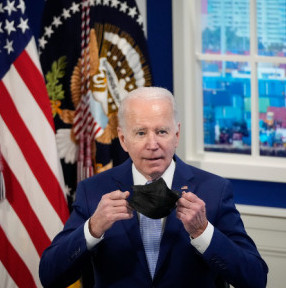
The West has once again reminded that the sanctions regime against Moscow is here to stay. On January 29, the EU Council extended the effect of its restrictive measures "in view of the Russian Federation's continuing actions destabilizing the situation in Ukraine" for another six months — until July 31, 2024. The Council's official statement lists the full range of sanctions imposed before, primarily the ban on importing oil and certain petrochemicals from Russia to the EU, the one imposed on Russian financial institutions to use the SWIFT messaging system, as well as algorithms adopted to increase EU's ability to counteract sanction circumvention.
Brussels’ first economic sanctions against Moscow came on July 31, 2014 and were followed by a significant expansion, starting February 2022. Since the day Russia launched its special military operation in Ukraine, the EU has adopted 12 unprecedented packages and announced preparations of the 13th one.
As part of the 12th package there is a "whiff" from Switzerland: starting February 1, the country has imposed new restrictions on imports and exports, particularly the purchase and import of diamonds, cast iron and liquefied petroleum gas from the Russian Federation. A statement to this effect can be found on the Swiss Federal Council’s website.
Of course, there has been news from Washington, where the fairway of Brussels’ sanctions actions is being generally indicated. On February 2, the United States and its allies presented recommendations to combat attempts of circumventing the Russian oil price cap, the US Treasury’s Office of Foreign Assets Control (OFAC) reported. The document calls for "remaining vigilant to cases where inadvertent circumvention or misinterpretation of the OPC occurs". Cases, the text goes on to say, may be allegedly accompanied by documentation forgery, lack of transportation cost transparency, intermediary scheme introduction, replacement of tanker flags, use of a "shadow fleet", and voyage irregularities.
And Bloomberg reported that Elizabeth Rosenberg, a Treasury Department official working on sanctions including those imposed against Russia, is leaving for the private sector. She is known for visiting “25 different countries, helping to rally support for the price cap and lean on allies to more strictly enforce sanctions and export controls on goods being shipped to Russia.”
And as if to make things even worse the White House suddenly tried to justify itself for autumn purchases of Russian oil at a price above the G7-set cap.
The case is about an American refinery that imported a small batch of Russian oil through a "loophole", with raw materials mixed at storage terminals in the Bahamas. A formally legal thing, officials assure. Morgan Butterfield with the US Energy Department’ Energy Information Administration (EIA) said that oil delivered to Wilmington, Delaware, in November did not violate US sanctions, because it was exported from Russia to the Bahamas before March 8, 2022, when those came into force. It was then mixed with another grade of oil before being imported to the United States, he added. After that, the cargo arrived at the PBF Energy refinery in Delaware City, EIA and customs data suggest. The importer clarified that the batches blended were partially of Russian origin. "The PBF cargo complies with US sanctions against Russia," refinery spokesman Mikhail Karlovich said, without giving specifics.
So, "mixes" containing Russian oil turn out quite appropriate to Washington, as it did not even dare fining the Wilmington refinery. The White House chose to justify itself instead.
Small wonder that head of the American Petroleum Institute/API (uniting over half a thousand players in the US oil and gas sector) Mike Sommers said anti-Russian oil sanctions imposed by the Biden administration were not working. "It has been proven that they [sanctions] do not work," he said.
Still, recent portions of Washington's sanctions against Russian oil tankers have actually generated a number of issues, primarily for shipment logistics of Sakhalin Sokol oil. Black gold from Sakhalin-1 was initially intended for the largest local refiner Indian Oil Corporation, media reports claim, but the parties failed to agree on supply terms. The discord was partially due to the payment currency, having coincided with tighter "price cap" regime against Russian oil by the United States. As a result, tankers loaded with Sokol oil have stood idle, serving as floating storage facilities until further orders from the shipper. While a compromise with Indian Oil has yet to be reached, it was decided to send part of oil to refineries owned by Sakhalin-1 shareholders in India. Apart from Rosneft and ONGC (20% each), those include Japanese Sodeco (30%), whilst the share owned by the project’s former operator Exxon (30%) is for sale, as ordered by the Russian authorities. A new operator has been appointed for Sakhalin-1 pursuant to Vladimir Putin's decree signed in October 2022 — Rosneft’s subsidiary Sakhalinmorneftegaz-Shelf.
In late January, the Russian Cabinet of Ministers commented on the Sokol oil case. "According to information from the companies, everything is fine, tankers are being shipped, calculations are underway," Deputy PM Alexander Novak said.
On February 1, Reuters reported that Russian oil imports to India have been declining for the second successive month. The January figure amounted to 1.3 million barrels per day, which is about 4% lower as compared to December, LSEG says. But two months are hardly enough to talk about a downward trend. Don’t you forget the recent Finance Ministry forecast that the Indian economy is likely to grow by 7% throughout the next fiscal year. This implies the republic’s potential to raise the bar for energy consumption.









